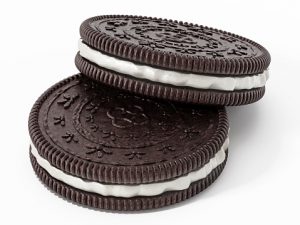USA: By Lori Coman
I recently had the pleasure of meeting the highly engaging and extremely energetic Maria Omar, director of media relations for the Islamic Food and Nutrition Council of America (IFANCA). Maria was manning their booth at the National Restaurant Association Show … the second time IFANCA exhibited there. They’ve been a presence at IFT for many years and she’ll be there again in New Orleans to talk about the many benefits to manufacturers whose products are halal-certified.
IFANCA was created in the 1980s by a group of food scientists. Their goal then—as now—was to help the U.S. prepared foods industry develop products in compliance with the rules of halal* and thus enable them to serve the American-Muslim community, which now numbers nearly 9 million. That’s big opportunity!
[*Essentially, halal standards for food/beverage means prepared without pork, without alcohol, and with adherence to animal slaughter principles. Any ingredient within a prepared food—such as emulsifiers, flavorings, enzymes and gelatins—must abide. For a quick and easy introduction on halal, have a look at this video.]Twenty billion dollars are spent annually on halal food/beverage in the United States alone. Yet it is a segment often overlooked by manufacturers, as the bulk of certification belongs to products exported to well-known Muslim majority regions like the Middle East and Southeast Asia. Big mistake. It’s estimated 89 percent to 95 percent of American Muslims observe halal dietary guidelines. In particular, the two-thirds of American Muslims under the age of 45 would like to partake in the broad range of cuisine available to all of us. From fast food to pastas to sushi, there is plenty of demand for a wide variety of food and beverage offerings.
College campuses, institutions, hotels, restaurants … all can cater to the demand for halal menu items. Maria mentioned an American-Muslim bride and groom invite between 300 and 1,000 guests to celebrate with them. That alone should get a banquet director’s attention! To help food directors and cafeteria managers create a halal area within their mainstream kitchen, IFANCA has developed a Halal Foodservice Kit, and it’s available on their website—free of charge.
And there’s more. IFANCA’s halal certification is accepted worldwide. By working with the organization, independent and mid-sized companies can reap the rewards of the global food market that is US$1.3 trillion strong. Halal certification can level the playing field and allow such companies to compete with the big players who tapped into the demand for halal-certified ready-to-eat prepared products more than a decade ago. Thanks to the recent explosion in globalized food trends and fast-food culture in the Muslim-majority nations, companies that offer all sorts of food and beverage products can tap into the ever-growing global Muslim’s desire for gastronomic variety.
If you haven’t considered the benefits of halal certification … or for more information on the process and opportunities available to your company, visit IFANCA.org.



